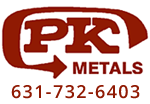Check out our blog on Forbes.com
A computer may be outdated, but everything from the motherboard to the plastic case can be recycled or sold for reuse. The process of dismantling the different components in an efficient way is to separate the plastic shell from the components, circuit boards, hard drives, power supply, etc. The circuit boards contain commodities such as palladium, copper, gold and silver. Recycling outdated computers is an immediate step that every business can take to improve their carbon footprint.
The Institute of Scrap Recycling Industries provides some helpful statistics on how much the E-Waste industry has grown over the past decade:
- The U.S. electronics recycling industry has shown tremendous growth over the past 10 years. This maturing segment of the scrap recycling industry provides a boost of approximately $5 billion to the U.S. economy (up from less than $1 billion in 2002) and employs more than 30,000 full time employees (up from 6,000 in 2002).
- Approximately three million to four million tons of electronic equipment is recycled every year. One metric ton of electronic scrap from personal computerscontains more goldthat that recovered from 17 tons of goldore.
- Last year, the U.S. electronics recycling industry processed 3 million to 4 million tons of used and end-of-life electronics equipment. More than 70 percent of the collected equipment is manufactured into specification grade commodities — including scrap, steel, aluminum, copper, lead, circuit boards, plastics, and glass.
It is clear that the E-Waste business has grown over the past decade. However, as the business continues to expand globally, challenges lay ahead. Some have taken an issue on how best to regulate E-Waste. For example, critics say that lax regulation can cause developed nations to export E-Waste to foreign countries without any oversight. In the United States, certifications (such as R2, ISO, etc) can certify companies to handle E-Waste. This allows e-recycling companies to operate under the same set of regulations. It is important that the customer know their vendor and understand the process on how their obsolete electronic equipment is being recycled
A potential solution to this concern is if the same type of compliance standards, such as R2 and other standards, were adopted overseas. This would allow for both marketplaces to operate under the same regulations, and lead to a much more efficient regulatory system.






